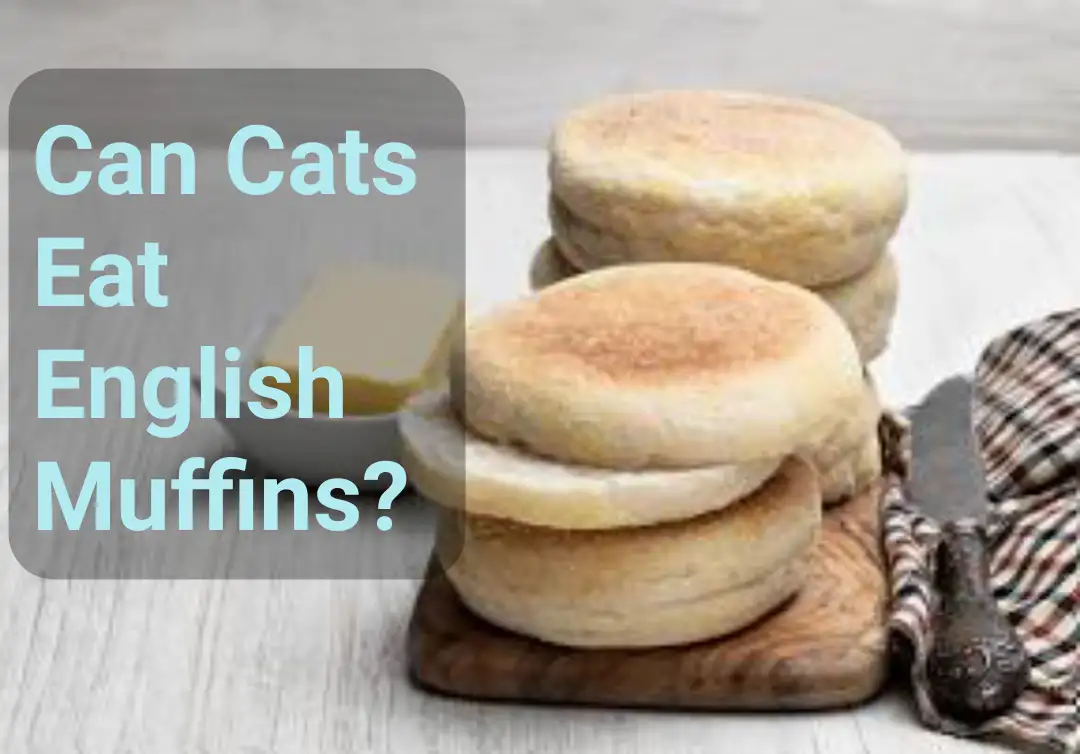Can Cats Eat English Muffins? All You Need To Know

English muffins never fail to awaken my palate; no wonder they have become one of the most popular breakfast choices around the world. With their versatility of being able to be combined with either sweet or sour toppings, I can testify that they are delicious. But the choice here is not about us; it is about our cats. Are English muffins safe for them?
Can cats eat English muffins? Cats can safely eat both plain and regular English muffins. The basic recipe is free of any toxic compounds in small quantities. However, this doesn’t mean you should add it to your cat’s breakfast menu. An English muffin is void of any meaningful contribution to your cat’s nutrition, so why feed them some?
This article will explore the ingredients used in making English muffins and their possible effects on your feline friend. You will also be exposed to knowledge on how to feed them and what to avoid when giving them English muffins.
Table of Contents
- What are English Muffins?
- Can Cats Eat English Muffins?
- Cats AND THE Different Types OF English Muffins
- Are English Muffins Safe For Cats? Final Thoughts
What are English Muffins?
English muffins are small, round, yeast-risen, flat breadstuffs. They are made from flour, sugar, milk, eggs, salt, and yeast. English muffins are sliced horizontally once baked, then buttered and toasted. Then they are usually served with tart or sweet toppings.
To achieve a specific taste, some bakers modify the original recipes. Commonly added ingredients are blueberries, fruits, and raisins, and some go ahead and add spices like cinnamon.
Can Cats Eat English Muffins?
As stated in the abstract of this article, cats can eat English muffins, provided you serve them as an occasional treat in small quantities. Cats have a basic diet of animal-based protein, which means that English muffins, being basically carbs, are not mainstream for cats’ nutritional needs. However, they pose no risk in small quantities.
Below, we will examine the ingredients used in making English muffins and discuss their potential harm to your cats:
Flour
Flour is an essential component of English muffins and serves as the foundation for the dough. One thing to consider is the gluten content of flour.
Gluten, which is present in wheat flour, can trigger allergies in certain cats, resulting in digestive issues such as an upset stomach, vomiting, and diarrhea. Furthermore, while small portions of flour are generally safe, consuming excessive amounts may cause discomfort in the gastrointestinal system.
Butter
Butter is occasionally included in English muffin recipes to boost the taste and texture. Although a small amount of butter may not have immediate adverse effects, its high-fat content could potentially upset a cat’s digestion or even cause pancreatitis.
Moreover, cats do not require butter as part of their diet, and excessive fat intake can contribute to obesity and associated health problems. It is advisable to refrain from offering butter or fatty foods to cats.
Sugar
English muffin dough often includes sugar to add sweetness and help the yeast ferment. Although a small amount of sugar might not be harmful to cats, it’s worth noting that cats are carnivores by nature and don’t need sugar in their diet.
Feeding them sugary foods can result in obesity, diabetes, and dental problems over time. Cats lack the required enzymes to effectively process sugars, so it’s advisable to refrain from giving them sugary treats or foods.
Salt
English muffin recipes often include salt to enhance the flavor. It’s important to note that cats are quite sensitive to sodium, and consuming excessive amounts of salt can result in sodium ion poisoning.
If a cat ingests too much salt, it may experience symptoms such as vomiting, diarrhea, increased thirst, lethargy, tremors, seizures, and, in severe cases, even death. To ensure your cat’s well-being, it is crucial to keep foods that are high in salt out of their reach, but thankfully, an English muffin contains an inconsequential amount of salt.
Yeast
The inclusion of yeast is what adds complexity to the situation. Specifically, when yeast is combined with other ingredients, processed in the oven, and subsequently cooled, it poses no harm to baked English muffins.
Cats need to be cautious when it comes to yeast dough, as it can be quite dangerous. Raw yeast has the ability to keep fermenting and creating alcohol inside the cat’s stomach, which can result in alcohol poisoning.
This can lead to various symptoms such as vomiting, diarrhea, confusion, and, in more serious cases, even coma. Additionally, the dough’s expansion in the stomach can cause bloating and discomfort.
Cats AND THE Different Types OF English Muffins
As previously stated, the initial recipe includes the ingredients mentioned above. However, there are alternative recipes that utilize different ingredients. It’s unfortunate to note that not all versions of English muffins are suitable for cats.
Can cats eat whole wheat English muffins?
Plain English muffins without any additional ingredients are usually safe for cats to consume in small quantities as an occasional treat. The dough contains yeast, which might lead to digestive discomfort in certain cats.
Can Cats eat blueberry English muffins?
If the blueberries are baked into the muffin, blueberry English muffins are generally acceptable for cats. However, it’s important to avoid giving cats whole blueberries as they can pose a choking risk, but besides that, blueberry plants, seeds, and bushes are safe for cats.
Can Cats eat cinnamon-raisin English muffins?
Cinnamon raisin English muffins could potentially cause digestive issues in cats due to the presence of raisins. Raisins are toxic to cats, and even small amounts could result in kidney damage. It’s best to steer clear of raisin muffins altogether.
Can Cats eat buttered English muffins?
Butter on English muffins is high in fat and provides unnecessary calories for cats. Plain muffins or those spread with a small amount of peanut butter would be preferable alternatives.
Can cats eat English muffins with fruit jam?
Jams and jellies have a high amount of added sugar, which is not good for cats. Regularly feeding these sugary treats to cats can lead to problems like obesity, dental issues, and other health concerns.
It’s important to be cautious because many jams and fruit spreads contain preservatives like xylitol or sorbitol, which are toxic to cats. Even small amounts of these sweeteners can cause serious health conditions in cats, such as hypoglycemia and liver failure.
Additionally, the high sugar content in jams can upset a cat’s digestive system. This may result in diarrhea, vomiting, or other discomforts, especially if the cat isn’t used to digesting sugary human foods.
When it comes to nutritional value, it’s worth noting that jams don’t offer much benefit for cats. Instead, occasionally feeding them plain English muffins would provide more fiber and nutrients.
Are English Muffins Safe For Cats? Final Thoughts
English muffins in moderation are generally okay for cats as an occasional treat. However, they don’t offer much in terms of nutritional value.
It’s best to avoid giving cats English muffins with additions like butter, jams, honey, or raisins, as these can upset their digestion and may even be toxic.
Since cats have limited tolerance for carbs and grains, it’s important not to overdo it. Consuming too much can lead to obesity and diabetes. It’s advisable to only give them small pieces of muffin sparingly.



